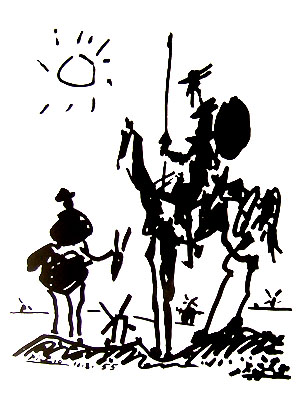Self Possession
Self possession is the capacity to possess strong feeling long enough to shape it into a contactful response. It is self-possession that prevents desire and passion from harming others. This is a very different quality than 'observing ego' in that it does not expect the ego to be at war with impulses. About self-possession Alexander Lowen writes:
What is wanted is an integration of the conscious and the involuntary and this can only happen when every conscious act is infused with feeling and every involuntary response is consciously perceived and understood (Pleasure, Chapter 11)
Self-possession is a natural quality within the person. If this capacity to possess feeling is not present, then instead, the person either represses the feeling, side-steps the development of feeling (compulsivity), or discharges small accumulations of energy as soon as possible and almost randomly (impulsivity). Self-possession should not be mistaken for the ego ideal of 'coolness' under all conditions. Strong, emotional, unified, expression is made possible by self-possession.
Self-control is a more common term, but inadequate for the purpose of this concept. First, self-control is often used in a puritanical sense to define a person stopping his- or herself from doing what they want to do. This is better described as self-negation. Control really only means reasonable guidance of a force or movement toward its fit or intended goal. Blocking is not controlling. Anyone who disables the engine of a car cannot rightfully be said to be controlling anything even if they are sitting behind the steering wheel. However, even this rehabilitated definition of self-control does not convey the sensitivity and feeling of 'self-possession.'
Adults are expected to respond out of thought as well as out of feeling. Young children sometimes act thoughtlessly out of feeling such as grabbing a toy from another child or biting a baby that is getting more attention. Because children at this level cannot hold back actions in the face of feeling, to avoid being shamed or punished, they must find a way of holding back feeling! But this is done by massive muscle tension and shallow breathing which becomes permanent and unconscious. As adults they are certainly able to hold back action, but they suffer from pleasurelessness and inability to act creatively.
Traditional wise child-rearing did not expect a child to internalize control until six years of age. Before this, supervision and 'environmental control' was used to keep things safe. It was understood that yelling, shaming, and punishment only harmed the child's spirit. That is why traditionally, formal education didn't start until six or seven. This coincides, in the work of Piaget, with leaving the 'pre-operational stage' and entering the 'stage of concrete operations'.
But in our complex culture which organizes potentially great rewards for adolescents that have certain specialized achievement, parents feel pressure to give the child 'an early start.' It is rationalized that the child needs to 'learn to control themselves eventually' anyway. But if this self-management is only expected later, when the timimg is right, then it can come about, very quickly, by much less harmful mechanisms.
